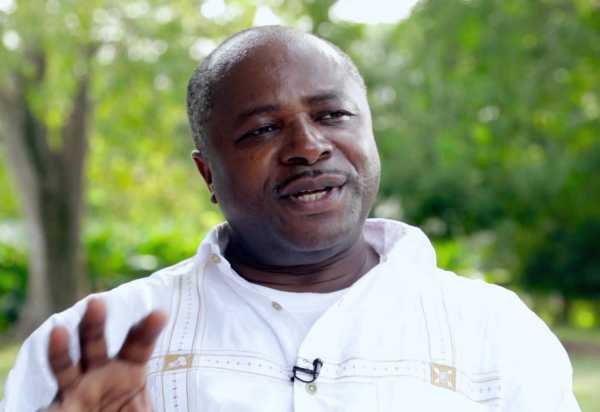Cassava Weed Management Project (CWMP) and Building an Economically Sustainable Integrated Seed System for Cassava (BASICS) of IITA will soon to unveil their scientific results in cassava production to policymakers.

Dr Alfred Dixon, IITA-CWMP Project Leader, made this known on Wednesday, March 14, 2018 in a document presented to News Agency of Nigeria (NAN) in Abuja.
“The results from the two projects will be presented to policymakers, researchers and other partners for possible scaling out to other states in Nigeria,’’ he said.
The document said that the presentation of the scientific results was part of the lead-up to the BASICS meeting in Ibadan from March 14 to March 16 and the IITA-CWMP meeting, also in Ibadan, between March 19 and March 20.
Dixon said that the five-year BASICS programme, which was inaugurated in 2014 and funded by the Bill & Melinda Gates Foundation, was aimed at addressing the weed challenge facing cassava farming systems.
“The overall goal is to raise the productivity of cassava, improve incomes, enhance environmental sustainability, support better health for women, children and create wealth,’’ he said.
The project leader said that in the last four years, the project had developed weed control options, drawing strength from the use of best agronomic practices, the use of motorised weeders and the use of safe and environmentally friendly herbicides.
He said that the BASICS project would also share with researchers and policymakers the latest findings in cassava seed systems, including activities from the semi-autotrophic hydroponics and the village seed entrepreneur model of seed multiplication and multiplication.
“Generally, seeds are the bedrock of the quest to increase agricultural productivity.
“In cassava, the seed system is weak, yet with great potential,’’ he said.
Dixon said that the planting of improved seeds and proper weed management would be beneficial to farmers, as it would boost productivity and, at the same time, reduce the drudgery of hoe-weeding.
He, however, said that although cassava was grown by more than four million people and a major source of livelihood to millions of people in the country, it had yet to attain full productivity.
He said that this was because the productivity of cassava has been stymied over the years by poor weed control, weak or nonexistent seed systems and poor understanding of the agronomy of the crop.
Dixon pledged that the project would intensify efforts to ensure that cassava farmers were aware of good weed management technologies, as CWMP teams were planning to establish more than 100 demonstration farms across the country.
Prof. Friday Ekeleme, one of the researchers, said that participating farmers in the project recorded an average cassava root yield of 22 to 27 tonnes per hectare across the four participating states in the country.
“The Food and Agriculture Organisation (FAO) declared that the figure is more than double the national average of 8 tonnes per hectare,’’ he said.
He said that the high yields were achieved with the aid of some of the identified safe and environmentally friendly herbicides.
“The herbicides were screened from 41 in 2014 to 11 in 2017.
“We also found that tillage and increasing the density of cassava by planting 12,500 stands per hectare, using vigorous growing varieties such as TME 419, could also control weed pressure and help farmers to go above the national yield threshold of eight tonnes per hectare,’’ he said.
The IITA Director-General, Dr Nteranya Sanginga, lauded the work by the team of researchers working under the IITA-CWMP, where more than 85 per cent of plots demonstrated that best-bet agronomic practices had raised cassava yields above the national average.
He noted that such discoveries by the IITA-CWMP had underscored the importance of IITA research to the agricultural transformation of Africa.
Sanginga emphasised that the focus of IITA on research and the people were two cardinal objectives that would never be compromised.
Dr Hemant Nitturkar, the Project Director of BASICS, said that the knowledge generated by the IITA-CWMP and BASICS would redefine the narrative of cassava in Africa by impacting positively on cassava yields at farm level.
NAN reports that IITA-CWMP is collaborating with National Root Crops Research Institute (NRCRI) Umudike, the Universities of Agriculture in Makurdi and Abeokuta as well as private and public extension service providers across Abia, Benue, Ogun and Oyo states, representing key cassava growing areas in the country.
